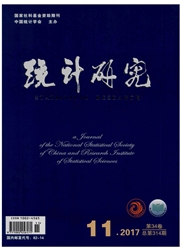

 中文摘要:
中文摘要:
本文基于流动资本的视角,在新古典要素分配模型中引入融资约束,分析了企业流动资本约束对劳动收入份额的影响机制;采用1998-2007年中国工业企业数据实证考察了融资约束对劳动收入份额的影响效应。研究表明,与流动资本紧密相关的内源融资约束对于劳动收入份额的变化具有显著的负向影响,尤其是对于非国有企业表现得更为明显;外源融资约束的加强在一定程度上则可能减少企业流动资本的挤占,从而增加劳动收入份额;企业垄断能力的变化及其实收资本中不同所有制所属份额,都将显著改变融资约束影响要素收入份额的程度。
 英文摘要:
英文摘要:
Based on circulating capital, this paper analyzes the mechanism of the impact on the labor income share in the neoclassical factor distribution model. It conducts empirical research and robust analysis by using China' s industrial enterprise data from 1998 to 2007. The empirical results show that: endogenous credit constraints which is solid related to the circulating capital have significant negative effect on labor income share, meanwhile, the counterpart effect is much more outstanding in the non-state-owned enterprises. Intensifying the exogenous credit constraints could reduce the extrusion effect on current cost of companies and finally increase the labor income share. Besides, monopoly power of firms and the different ownership capital share in paid-in capital will affect the degree of influence of credit constraints on the labor income share.
 同期刊论文项目
同期刊论文项目
 同项目期刊论文
同项目期刊论文
 期刊信息
期刊信息
